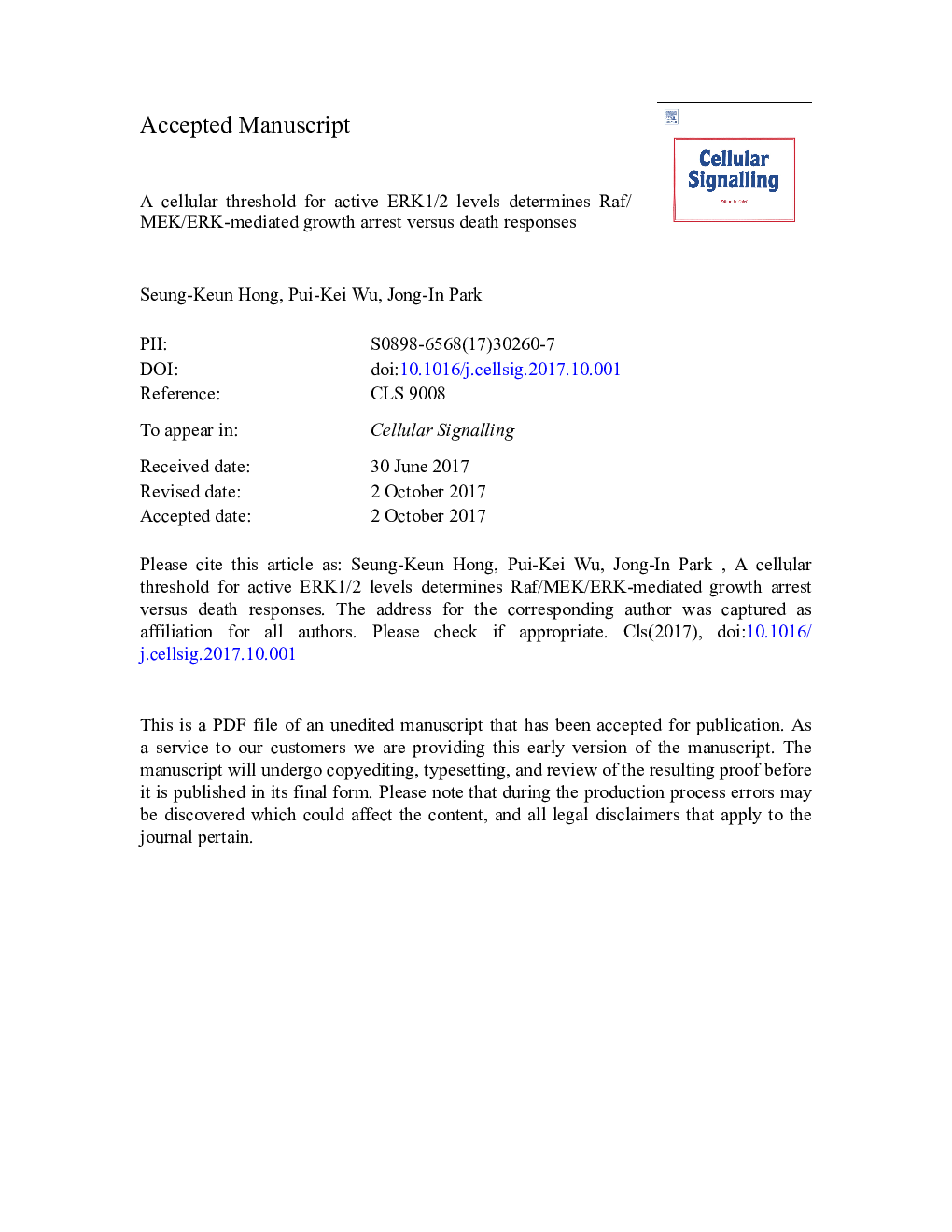| Article ID | Journal | Published Year | Pages | File Type |
|---|---|---|---|---|
| 8309024 | Cellular Signalling | 2018 | 35 Pages |
Abstract
In addition to its conventional role for cell proliferation and survival, the Raf/MEK/Extracellular signal-regulated kinase (ERK) pathway can also induce growth arrest and death responses, if aberrantly activated. Here, we determined a molecular basis of ERK1/2 signaling that underlies these growth inhibitory physiological outputs. We found that overexpression of ERK1 or ERK2 switches ÎRaf-1:ER-induced growth arrest responses to caspase-dependent apoptotic death responses in different cell types. These death responses, however, were reverted to growth arrest responses upon titration of cellular phospho-ERK1/2 levels by the MEK1/2 inhibitor AZD6244. These data suggest that a cellular threshold for active ERK1/2 levels exists and affects the cell fate between death and growth arrest. We also found that death-mediating ability of ERK2 is abolished by the catalytic site-disabling Lys52Arg replacement or significantly attenuated by the F-site recruitment site-disabling Tyr261Asn replacement, although unaffected by the mutations that disable the common docking groove or the dimerization interface. Therefore, ERK1/2 mediates death signaling dependently of kinase activity and specific physical interactions. Intriguingly, Tyr261Asn-replaced ERK2 could still mediate growth arrest signaling, further contrasting the molecular basis of ERK1/2-mediated growth arrest and death signaling. These data reveal a mechanism underlying the role of ERK1/2 as a focal point of Raf/MEK/ERK-mediated growth arrest and death signaling.
Keywords
Related Topics
Life Sciences
Biochemistry, Genetics and Molecular Biology
Biochemistry
Authors
Seung-Keun Hong, Pui-Kei Wu, Jong-In Park,
